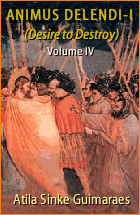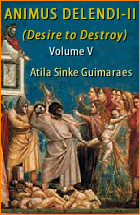NEWS: May 12, 2021
 |
 |
 |
 |
 |
 |
 |
Bird’s Eye View of the News

MORE LITURGICAL REFORMS - JESUIT INSIGHT -
Last month, Fr. Thomas Reese, ex-Chief Editor of the Jesuit magazine America published an
online article offering his input on the liturgical reforms that still need to come to fulfill the progressivist agenda.
/bev255_Ree.jpg) Reese is a progressivist, a clever progressivist, whom I follow from a distance to know what the few people who still think on the other pole of the spectrum are planning to do. I used to read
America when he directed it. After he was put out by a demand of Benedict XVI shortly after he was elected, it became clear to me that banality and mediocrity had taken over that Jesuit periodical. I canceled my subscription.
Reese is a progressivist, a clever progressivist, whom I follow from a distance to know what the few people who still think on the other pole of the spectrum are planning to do. I used to read
America when he directed it. After he was put out by a demand of Benedict XVI shortly after he was elected, it became clear to me that banality and mediocrity had taken over that Jesuit periodical. I canceled my subscription.
Ratzinger and Reeze had rifts on many points, which remain alive today, since I see the latter still throwing stones at his German opponent. When analyzing Reeze's longings for the future Church, I will skip over his personal attacks against his moribund foe.
The Jesuit started by presenting himself as a continuator of Paul VI, who "implemented revolutionary liturgical reforms." After a supposed hiatus of 40 years, "now it is time for a second phase," he asserted.
His egalitarian first proposal is against the premise that the Liturgy should reflect the totality of the Catholic Faith. Instead, for him it should come from "a consensus within the community."
So, the new phase of the reform should be "grounded in the cultures beyond the European base." Actually, such hatred for the Roman Rite, which reflects 2,000 years of Catholic Tradition, is common among progressivists. They invent any pretext trying to abolish it.
/bev255_Rom.png) Since ancient Rome was the capital of an Empire that encompassed a considerable part of the world, the Roman Catholic Church inherited that universality and translated it to the spiritual sphere. She does not need to renounce her Roman note in order to be universal or to spiritually lead all the peoples of the world. The various peoples who came to the Church understood it without any problem. Although maintaining their own cultural characteristics, they were always proud to belong to the Roman Catholic Church.
Since ancient Rome was the capital of an Empire that encompassed a considerable part of the world, the Roman Catholic Church inherited that universality and translated it to the spiritual sphere. She does not need to renounce her Roman note in order to be universal or to spiritually lead all the peoples of the world. The various peoples who came to the Church understood it without any problem. Although maintaining their own cultural characteristics, they were always proud to belong to the Roman Catholic Church.
The progressivist talk of inculturation, which means that the Church should abandon her Roman note and adopt the local cultural tones in each area she goes, is a revolt against her past and an attempt to destroy it.
Regarding the consistency of his argument, Reese slipped into a blatant contradiction. He affirms: "Each bishops' conference needs to be encouraged to gather scholars, poets, musicians, artists and pastors to develop liturgies for their specific cultures."
We observe in this proposal four levels of artificial impositions: first, the Vatican should command bishops who are not interested in this topic to engage in it; second, the Bishops should call together a group whose members are not concerned about liturgy; third, the group should invent an artificial model for a non-existent liturgy; fourth, this model should be imposed on an oblivious people as the expression of their longings…
This request is not an expression of the people. It is an imposition of a cupola. It is not a "democratic," "collegial" or "synodal" Church. It is a dictatorship.
/bev255_Mar.jpg) If this inculturated liturgy were organic, it would come naturally from the aspirations of the various peoples around the world. But it does not emerge in this way. Instead, it has to be forced down throats of an abulic people by a group who has composed an artificial liturgy.
If this inculturated liturgy were organic, it would come naturally from the aspirations of the various peoples around the world. But it does not emerge in this way. Instead, it has to be forced down throats of an abulic people by a group who has composed an artificial liturgy.
This is what the Amazonian Bishops are trying to do in order to obey the diktats of an authoritarian Pope. Nothing could be more artificial than the "Amazonian rites" for the Mass that are being prepared in the progressivist laboratories.
On the other hand, the Roman Rite was always opened to assimilate the salutary aspirations of the different peoples who accepted the Catholic Faith, in the due measure the Catholic sense calls for this. This is why, for example, we see beautiful Japanese, Chinese and African statues and paintings depicting Our Lady and the Child Jesus as persons of their respective races.
New ministries
Next, the Jesuit questioned the present-day status of the post-conciliar ministries in those points where they still maintain some traditional traits.
He asked: "Do all liturgical leaders have to be celibate, male, full-time employees? Can a deacon or layperson anoint the sick or hear confessions? In an age of declining numbers of priests, such questions must be faced."
In these three matters he summarized the revolutionary agenda that is coming:/bev255_Vat.jpg) Let me note that these are not the longings of an isolated utopist. Unfortunately, many of these points are already being enforced in many places, for example, in the Amazon region by Card. Claudio Hummes, head of the newly established Amazonian Episcopal Conference.
Let me note that these are not the longings of an isolated utopist. Unfortunately, many of these points are already being enforced in many places, for example, in the Amazon region by Card. Claudio Hummes, head of the newly established Amazonian Episcopal Conference.
Needless to say that if these proposals are implemented the Catholic Church disappears. Indeed, the characteristics of the clergy as distinct from the laity have already become so diluted that the identity of the Church is no longer recognizable. How can a person accept a woman saying the Mass and continue to be Catholic? What validity would an absolution administered by a layman have? How can anyone trust the last rites given by a lay person - man or woman - to a loved one who is dying?
If the priesthood and the sacraments become so blurred and depleted, does this not also imply a relativization of the Sacrament of Orders? Will the Bishops not also erode their missions in this muddy magma? Without a defined priesthood and a clearly established Hierarchy, can the Catholic Church exist?
To be continued

/bev255_Ree.jpg)
Fr. Thomas Reese, SJ, proposes
a new round of reforms in the Liturgy
Ratzinger and Reeze had rifts on many points, which remain alive today, since I see the latter still throwing stones at his German opponent. When analyzing Reeze's longings for the future Church, I will skip over his personal attacks against his moribund foe.
The Jesuit started by presenting himself as a continuator of Paul VI, who "implemented revolutionary liturgical reforms." After a supposed hiatus of 40 years, "now it is time for a second phase," he asserted.
His egalitarian first proposal is against the premise that the Liturgy should reflect the totality of the Catholic Faith. Instead, for him it should come from "a consensus within the community."
So, the new phase of the reform should be "grounded in the cultures beyond the European base." Actually, such hatred for the Roman Rite, which reflects 2,000 years of Catholic Tradition, is common among progressivists. They invent any pretext trying to abolish it.
/bev255_Rom.png)
The Catholic Church inherited the universality of the Roman Empire & transfered it to the spiritual sphere
The progressivist talk of inculturation, which means that the Church should abandon her Roman note and adopt the local cultural tones in each area she goes, is a revolt against her past and an attempt to destroy it.
Regarding the consistency of his argument, Reese slipped into a blatant contradiction. He affirms: "Each bishops' conference needs to be encouraged to gather scholars, poets, musicians, artists and pastors to develop liturgies for their specific cultures."
We observe in this proposal four levels of artificial impositions: first, the Vatican should command bishops who are not interested in this topic to engage in it; second, the Bishops should call together a group whose members are not concerned about liturgy; third, the group should invent an artificial model for a non-existent liturgy; fourth, this model should be imposed on an oblivious people as the expression of their longings…
This request is not an expression of the people. It is an imposition of a cupola. It is not a "democratic," "collegial" or "synodal" Church. It is a dictatorship.
/bev255_Mar.jpg)
The Church doesn't need inculturation to incorporate the peoples she converts – above a Chinese Our Lady
This is what the Amazonian Bishops are trying to do in order to obey the diktats of an authoritarian Pope. Nothing could be more artificial than the "Amazonian rites" for the Mass that are being prepared in the progressivist laboratories.
On the other hand, the Roman Rite was always opened to assimilate the salutary aspirations of the different peoples who accepted the Catholic Faith, in the due measure the Catholic sense calls for this. This is why, for example, we see beautiful Japanese, Chinese and African statues and paintings depicting Our Lady and the Child Jesus as persons of their respective races.
New ministries
Next, the Jesuit questioned the present-day status of the post-conciliar ministries in those points where they still maintain some traditional traits.
He asked: "Do all liturgical leaders have to be celibate, male, full-time employees? Can a deacon or layperson anoint the sick or hear confessions? In an age of declining numbers of priests, such questions must be faced."
In these three matters he summarized the revolutionary agenda that is coming:
- Priests should marry;
- Women should be admitted to the priesthood;
- The priesthood should be a part-time job;
- Deacons and even lay persons should be able to hear confession and give the last rites.
/bev255_Vat.jpg)
In the Vatican, a woman-guru led the worship of Pachamama – a model for the coming liturgy
Needless to say that if these proposals are implemented the Catholic Church disappears. Indeed, the characteristics of the clergy as distinct from the laity have already become so diluted that the identity of the Church is no longer recognizable. How can a person accept a woman saying the Mass and continue to be Catholic? What validity would an absolution administered by a layman have? How can anyone trust the last rites given by a lay person - man or woman - to a loved one who is dying?
If the priesthood and the sacraments become so blurred and depleted, does this not also imply a relativization of the Sacrament of Orders? Will the Bishops not also erode their missions in this muddy magma? Without a defined priesthood and a clearly established Hierarchy, can the Catholic Church exist?
To be continued
















